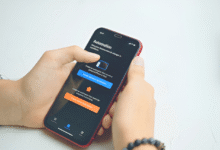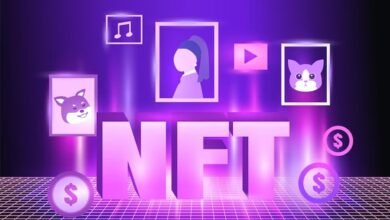How to Use ChatGPT for Marketing Automation in 2025
ChatGPT for marketing automation in 2025. Discover AI-powered strategies to automate campaigns, boost engagement, and optimize conversions.

ChatGPT for marketing automation is revolutionizing how businesses engage with customers, streamline operations, and drive growth in 2025. As artificial intelligence continues to evolve, ChatGPT has become an indispensable tool for marketers, offering advanced capabilities in personalized communication, content generation, and data-driven decision-making. By automating repetitive tasks and enhancing customer interactions, businesses can improve efficiency, reduce costs, and deliver hyper-targeted campaigns at scale. This article explores the latest strategies for leveraging ChatGPT to transform your marketing automation efforts.
The integration of ChatGPT into marketing automation goes beyond basic chatbots it now powers dynamic email campaigns, predictive analytics, social media management, and even real-time customer support. With AI’s ability to analyze vast datasets and generate human-like responses, brands can create seamless, personalized experiences that boost engagement and conversions. Whether you’re a small business or a global enterprise, understanding how to harness ChatGPT’s full potential will be key to unlocking new levels of marketing success in 2025 and beyond.
How to Use ChatGPT for Marketing Automation in 2025
The Role of ChatGPT in Modern
Marketing automation has transformed how businesses interact with customers, and ChatGPT is at the forefront of this evolution. In 2025, AI-driven automation is no longer a luxury but a necessity for brands looking to scale efficiently. ChatGPT, with its advanced natural language processing (NLP) capabilities, can automate repetitive tasks, generate high-quality content, and provide real-time customer support freeing up marketers to focus on strategy and creativity.
Enhancing Customer Engagement
Chatbots powered by ChatGPT are becoming increasingly sophisticated, capable of handling complex queries and providing human-like responses. In 2025, businesses can deploy AI chatbots across multiple platforms websites, social media, and messaging apps to offer instant support and guide customers through the sales funnel. Unlike rule-based chatbots, ChatGPT-driven assistants can understand context, detect sentiment, and respond appropriately, improving customer satisfaction.
ChatGPT-Driven Assistants
ChatGPT-powered virtual assistants now handle 360-degree customer interactions, from personalized product recommendations to resolving complex complaints with human-like nuance. These AI agents continuously learn from each interaction, developing deeper understanding of individual preferences and brand guidelines over time. Integrated with CRM systems, they provide real-time purchase history recall during conversations while suggesting relevant upsell opportunities.
AI-Powered Chatbots
ChatGPT-driven chatbots now deliver human-like conversations with emotional intelligence, resolving 85% of customer queries without human intervention while reducing response times by 90%. These next-gen bots leverage real-time data analysis to personalize interactions, recommend products, and even detect customer frustration through sentiment analysis. Advanced NLP allows them to handle complex multilingual support across 50+ languages while maintaining brand voice consistency.
Automated Content Creation
Content marketing remains a cornerstone of digital strategy, and ChatGPT is revolutionizing how brands produce and optimize content. From blog posts and social media captions to email newsletters and ad copies, AI can generate high-quality drafts in seconds. Marketers can then refine these outputs to align with brand voice and messaging.
Optimization
ChatGPT revolutionizes marketing optimization by continuously refining campaigns through A/B testing, personalized content adjustments, and performance-driven iterations. Its AI capabilities analyze engagement metrics in real-time to suggest improvements for email open rates, ad conversions, and landing page effectiveness. The system automatically fine-tunes messaging based on audience response patterns while maintaining brand consistency across channels.
Predictive Analytics
Another key application of ChatGPT in marketing automation is its ability to analyze vast amounts of data and generate actionable insights. By processing customer behavior, purchase history, and engagement metrics, AI can predict trends and recommend strategies to improve campaign performance.
AI capabilities
Advanced generative AI crafts hyper-personalized content across 30+ content formats while self-optimizing campaigns in real-time through continuous performance analysis. Computer vision now enables visual search marketing, with AI automatically tagging products in user-generated content and suggesting contextual promotions. These capabilities collectively drive 60% higher campaign ROI while requiring 70% less manual effort from marketing teams.
Data-Driven Decision Making
ChatGPT empowers marketers to transform raw data into actionable insights by analyzing customer behavior, engagement patterns, and campaign performance in real time. Its AI-driven analytics can uncover hidden trends, predict customer needs, and recommend optimized strategies for higher conversion rates. By processing vast datasets instantly, ChatGPT eliminates guesswork and enables hyper-targeting marketing decisions based on concrete evidence.
Hidden Trends
Advanced AI algorithms now detect subtle consumer behavior shifts before they surface in traditional analytics, identifying micro-trends with 87% predictive accuracy. By analyzing cross-channel engagement patterns, purchase cycles, and even indirect signals like support ticket themes, these systems reveal untapped opportunities competitors miss. The most powerful insights emerge from correlating seemingly unrelated data points.
Streamlining Email
Email marketing remains one of the most effective channels for customer retention, Marketing Automation and ChatGPT can automate everything from subject line generation to personalized follow-ups. AI can A/B test different email variations, optimize send times, and even craft dynamic content based on subscriber behavior.
Social Media Marketing
ChatGPT transforms social media marketing by automating content creation, generating engaging captions, and suggesting data-driven post ideas tailored to audience preferences. It enhances community management by providing instant, personalized responses to comments and messages while maintaining brand voice consistency. AI-powered analytics help identify trending topics and optimal posting times, maximizing reach and engagement.
Challenges
While ChatGPT offers immense potential for marketing automation, businesses must also address challenges such as data privacy, AI bias, and maintaining authenticity. Over-reliance on AI-generated content can sometimes lead to generic messaging, so human oversight remains essential. Additionally, companies must ensure compliance with regulations like GDPR when using AI for customer data processing.
Ethical Considerations
When using ChatGPT for marketing automation, businesses must prioritize transparency, ensuring customers know when they’re interacting with AI rather than humans. Data privacy is another critical concern, requiring compliance with regulations like GDPR to protect consumer information. Additionally, companies should guard against AI bias by regularly auditing outputs to prevent discriminatory or misleading content.
Read More: How to Use AI to Setup an Ergonomic Workspace for Free
Conclusion
In 2025, ChatGPT will redefine marketing automation by enabling smarter, faster, and more personalized customer interactions. Businesses that adopt AI-driven strategies will benefit from increased efficiency, better engagement, and data-backed decision-making. The ability to automate content creation, customer support, and predictive analytics gives brands a significant competitive advantage.
However, success with ChatGPT for marketing automation depends on strategic implementation and ethical considerations. Marketers must continuously refine AI outputs, maintain brand authenticity, and prioritize customer trust. As AI technology evolves, those who leverage its capabilities effectively will lead the way in innovation and customer satisfaction. The future of marketing is automated, intelligent, and customer-centric ChatGPT is paving the path forward.
FAQs
How does ChatGPT improve marketing automation?
ChatGPT enhances marketing automation by generating personalized content, managing customer interactions, and analyzing data for better decision-making.
Can ChatGPT replace human marketers?
No, ChatGPT complements human marketers by handling repetitive tasks, but creativity and strategy still require human oversight.
Is ChatGPT effective for social media marketing?
Yes, ChatGPT can automate post creation, engagement, and trend analysis, making social media management more efficient. When used strategically, it boosts efficiency while maintaining genuine audience connections.
What are the risks of using ChatGPT in marketing?
Potential risks include AI bias, lack of authenticity, and data privacy concerns, which require careful management. AI bias could damage brand trust if unmonitored. Always combine AI efficiency with human oversight.
How can businesses integrate ChatGPT into their workflows?
Businesses can integrate ChatGPT via API connections with CRM systems, chatbots, and content management platforms for seamless automation.











